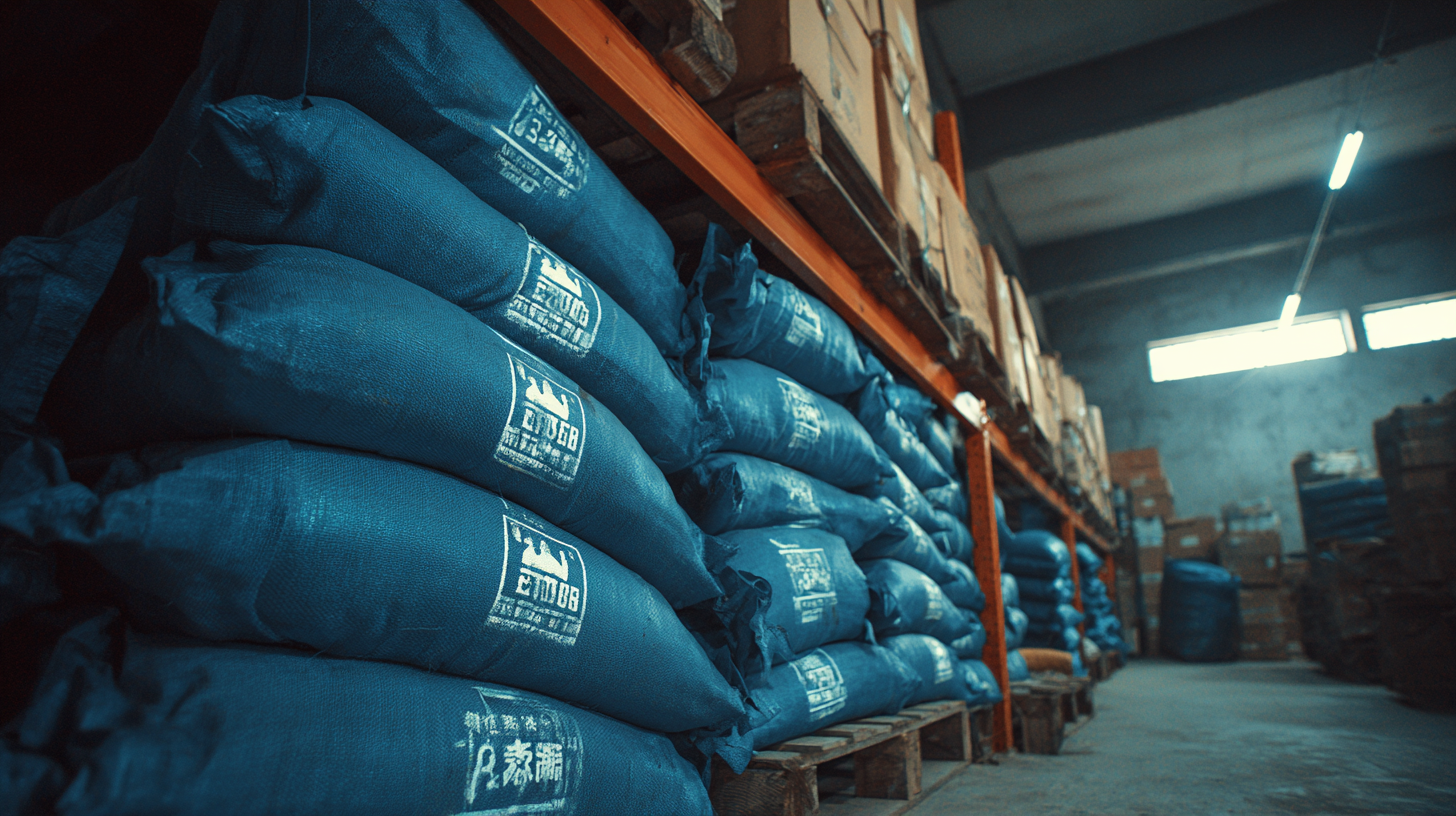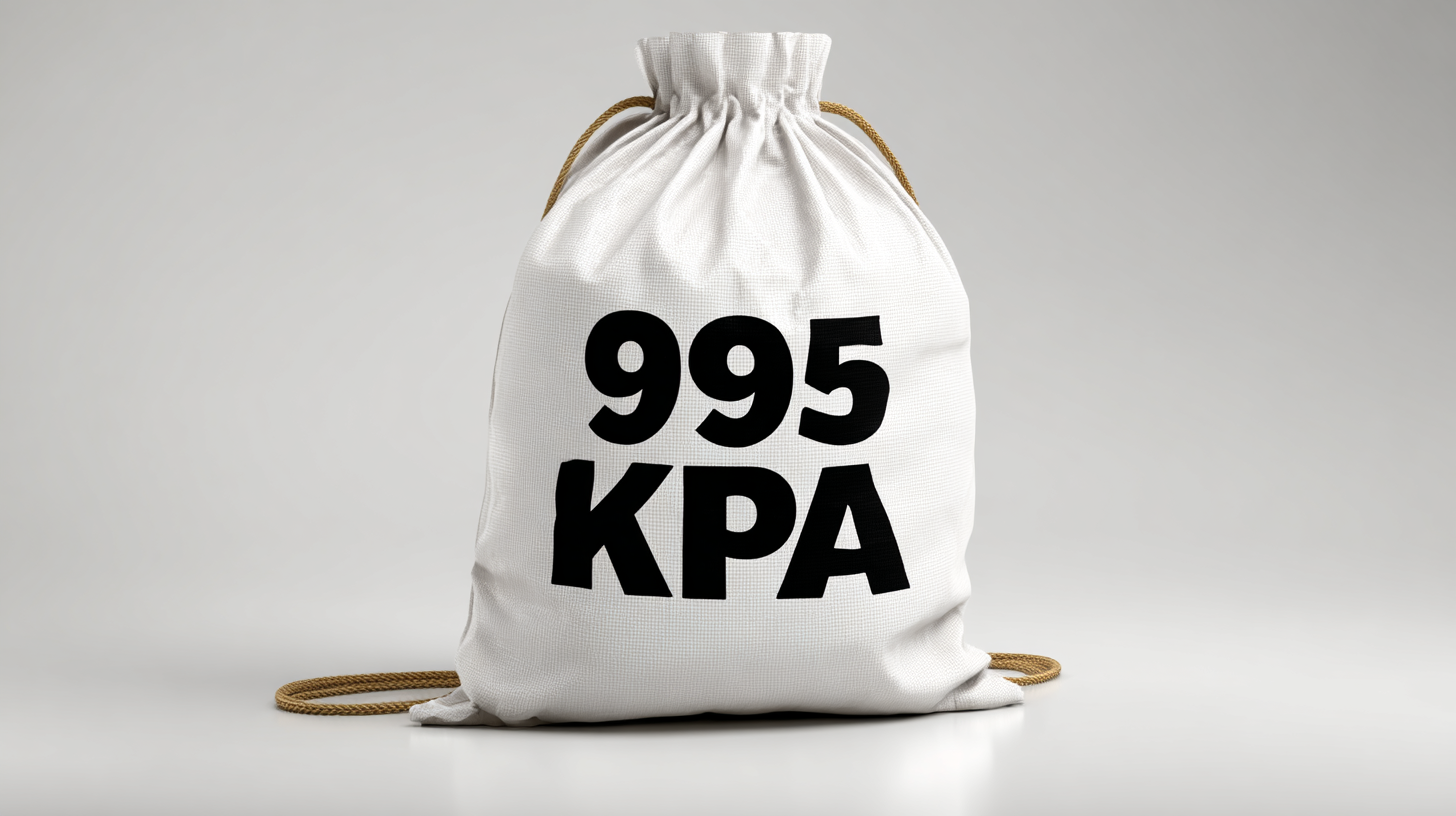 +86 178 5514 5298
+86 178 5514 5298
Leave Your Message
-
 CONTACT NUMBER
CONTACT NUMBER -
 CONTACT NUMBER
CONTACT NUMBER -
 CONTACT NUMBER
CONTACT NUMBER



In the competitive landscape of the manufacturing industry, sourcing quality suppliers for specialized products like the 95 kPa Bag is crucial for businesses aiming to enhance their market presence. According to a recent report by Smithers Pira, the global market for flexible packaging, which includes products like the 95 kPa Bag, is expected to reach $250 billion by 2024, growing at a CAGR of 4.2%. This growth is driven by the increasing demand for lightweight, durable, and eco-friendly packaging solutions. However, finding reliable suppliers that can meet stringent quality and production standards remains a challenge.

It is essential for manufacturers to understand the key factors in supplier selection to ensure they can deliver high-quality bags that meet both consumer needs and regulatory requirements. As the industry slogan suggests, "精工细造,中国制造,服务世界", epitomizing the commitment to precision engineering and global service, this blog will provide essential tips for successfully sourcing quality suppliers in the realm of 95 kPa Bag manufacturing.
Finding reliable suppliers for 95 kPa bag manufacturing is crucial for ensuring quality and consistency in production. When identifying key characteristics of trustworthy suppliers, the first aspect to consider is their experience and expertise in the industry. Suppliers with a proven track record in manufacturing high-quality bags at specific pressure ratings are more likely to understand the nuances of the materials and production processes required. Look for suppliers who can provide certifications or examples of their previous work to gauge their reliability.

Additionally, communication plays a vital role in establishing a successful partnership with suppliers. Reliable suppliers should be responsive and transparent in their dealings, ready to address any concerns or questions promptly. Their ability to communicate openly about production timelines, material sourcing, and quality control processes can be an indicator of their commitment to customer satisfaction. Furthermore, consider their willingness to adapt to your specific needs, as flexibility can ensure a more tailored and effective collaboration for your 95 kPa bag production.
When sourcing quality suppliers for 95 kPa bag manufacturing, evaluating supplier credentials is paramount. Certifications play a crucial role in establishing the credibility of potential partners. According to the International Organization for Standardization (ISO), nearly 1.6 million organizations worldwide hold ISO 9001 certification, which ensures that a supplier has met international quality management standards. Choosing suppliers with relevant certifications not only confirms their commitment to quality but also minimizes risks associated with supply chain disruptions.
In addition to certifications, analyzing a supplier's track record is essential. A report from Supply Chain Insights reveals that companies with robust track records in performance, delivery, and compliance can reduce operational costs by up to 30%. When reviewing track records, look for metrics such as on-time delivery rates and historical response times to quality issues. Engaging suppliers who consistently meet or exceed industry benchmarks can enhance your manufacturing process and ensure the production of high-quality 95 kPa bags, ultimately safeguarding your business reputation and customer satisfaction.
When sourcing quality suppliers for 95 kPa bag manufacturing, understanding the materials used in production is crucial. As we delve into material quality, several key aspects should be considered. First, it’s important to evaluate the fabric's durability. High-quality materials ensure that bags can withstand wear and tear, which is particularly essential for products like diaper bags, dry bags, and luggage that undergo rigorous usage. For instance, fabrics such as waterproof synthetics or recycled materials not only enhance functionality but also support sustainable practices in manufacturing.
Another factor to consider is the fabric's environmental impact. More manufacturers are moving towards lower-impact fabrics like organic cotton and recycled fibers, which help reduce waste and promote sustainability. When assessing potential suppliers, inquire about their sourcing and production processes. Certifications or eco-labels can serve as indicators of a supplier’s commitment to quality and sustainability. With a growing consumer preference for eco-friendly products, aligning your sourcing strategy with these trends can not only elevate your brand's reputation but also appeal to environmentally conscious customers.

When sourcing quality suppliers for 95 kPa bag manufacturing, negotiating terms is crucial to ensuring a mutually beneficial relationship. One of the primary considerations is pricing. It’s essential to gather quotes from multiple suppliers to understand the market rates. However, the cheapest option may not always provide the best long-term value. Assessing the supplier’s ability to deliver consistent quality at a competitive price should be a key factor in your decision-making process. Negotiating bulk discounts or flexible payment terms can also enhance your purchasing power while fostering a stronger partnership.
Delivery timelines are another critical aspect of negotiations. Ensure that suppliers can meet your production schedules without compromising quality. Discuss their shipping capabilities, lead times, and any potential delays beforehand. A supplier with a reliable track record of on-time delivery is invaluable to your operations. Lastly, consider the level of support they provide post-purchase. Effective communication regarding issues or changes in orders can make a significant difference in maintaining a smooth production flow. Clarity in terms of customer support and after-sales service can help establish a stronger, more collaborative relationship with your chosen suppliers.
Building long-term relationships with your chosen suppliers is crucial in the highly competitive field of 95 kPa bag manufacturing. A recent report by Smithers Pira indicates that developing solid partnerships can lead to a 20% increase in manufacturing efficiency. This is primarily due to improved communication and cooperation, allowing for a seamless exchange of feedback and innovations. When suppliers understand your specific needs and quality standards, they can provide solutions that enhance the production process and ultimately benefit both parties.
Moreover, the importance of reliability cannot be overstated. According to a survey conducted by the Institute for Supply Management, over 75% of businesses indicated that dependable suppliers positively impact their operational performance. By investing time in building rapport and trust with your suppliers, you ensure that they prioritize your orders, maintain consistent quality, and remain agile in addressing any challenges that arise. Such relationships can also foster opportunities for collaboration on new product developments, giving your business a competitive edge in the evolving market landscape.
| Supplier Criteria | Description | Importance Level | Evaluation Method |
|---|---|---|---|
| Production Capacity | Ability to meet your order volumes and timelines. | High | Request production schedules and capacity reports. |
| Quality Assurance | Standards and processes for ensuring product quality. | High | Inspect certification and audit reports. |
| Pricing Structure | Cost competitiveness and transparency in pricing. | Medium | Compare quotes from multiple suppliers. |
| Communication | Clarity and responsiveness in interactions. | High | Assess during initial discussions and follow-ups. |
| Sustainability Practices | Commitment to eco-friendly processes and materials. | Medium | Review sustainability certifications and initiatives. |
| Lead Times | Time required to deliver products after order. | High | Request estimated delivery dates for standard orders. |
